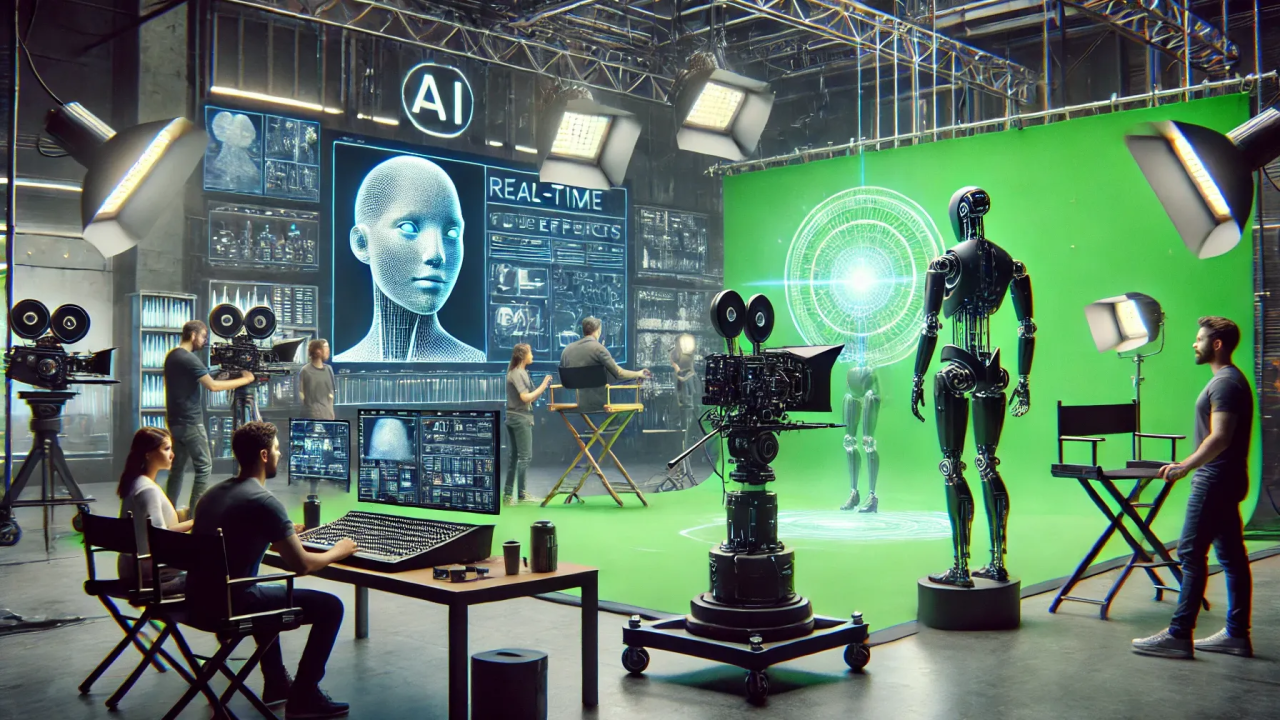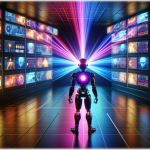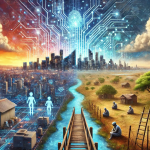Introduction
The entertainment industry is undergoing a digital transformation where artificial intelligence and global connectivity are rewriting the rules of fame. From deepfake performances to AI-generated music, technology is changing how celebrities interact with audiences and how global entertainment is consumed.
This evolution is not only shaping new stars but also influencing the politics of media ownership and digital ethics. As the lines between human creativity and machine intelligence blur, the world faces new questions about authenticity, influence, and responsibility in the age of digital celebrity.
AI’s Growing Role in Shaping Modern Fame
Artificial intelligence is no longer just a background tool in the entertainment world. It now curates playlists, writes screenplays, and even creates lifelike avatars that compete with real celebrities. Streaming platforms rely on AI algorithms to recommend content that keeps users engaged, indirectly shaping who becomes famous and who fades from the spotlight.
This invisible control of technology over audience preference has created a feedback loop where fame is now data-driven. Musicians and actors tailor their content to match algorithmic trends, allowing machine learning systems to dictate cultural relevance in real time.
Globalization and the New Wave of Digital Stars
The internet has made fame more accessible and international than ever before. A viral video or a trending post can launch a person from obscurity to stardom overnight, reaching millions across borders. Platforms like TikTok and YouTube have democratized exposure, transforming local entertainers into global icons.
However, this global reach also comes with challenges. Different cultures interpret celebrity behavior through distinct moral lenses, often leading to controversy or backlash. The universal accessibility of fame has thus created a complex web of cultural diplomacy and media responsibility.
Celebrity Activism in the AI Age
Celebrities are increasingly using their influence to advocate for ethical use of technology. Figures like Elon Musk, Scarlett Johansson, and Billie Eilish have spoken out about AI regulation, privacy, and the environmental costs of digital production. Their voices carry global weight in shaping public discourse on responsible innovation.
Yet, this activism also reveals the contradictions of modern fame. While stars promote sustainability and digital ethics, many rely on energy-intensive productions, NFTs, and AI-powered branding tools. The balance between advocacy and authenticity remains one of the central tensions in celebrity influence today.
Technology Companies and the Politics of Influence
Tech giants like Meta, Apple, and OpenAI are not just building tools—they are building culture. Their partnerships with entertainers and studios define the future of storytelling, marketing, and fan engagement. AI-driven virtual concerts, such as those hosted in the metaverse, have introduced new revenue streams and global audiences.
However, this technological dominance also raises political questions. As corporations gain control over content distribution, governments and creative unions are fighting for fair labor practices and intellectual property rights. The intersection of technology and art has become a battleground for digital freedom.
AI and the Ethics of Digital Personas
The rise of AI-generated influencers—virtual beings who mimic human behavior—has blurred the concept of identity. Some virtual models have millions of followers, brand deals, and social influence, despite not being real. This has forced the entertainment industry to rethink the boundaries of creativity and truth.
Legal experts warn that this evolution could lead to exploitation, with digital doubles replacing real performers. The Screen Actors Guild’s recent negotiations over AI rights highlight the urgent need for global standards protecting human artistry in an increasingly automated world.
The Future of Fame in a Connected World
The future of fame will likely be hybrid—where technology and humanity coexist to create immersive storytelling experiences. AI might assist in performance design, but emotional authenticity will continue to be the ultimate currency of connection.
As global audiences grow more aware of media manipulation, transparency and ethical innovation will define long-term trust in the entertainment industry. The next generation of stars will need both digital fluency and social consciousness to thrive.
FAQs
How is AI changing the entertainment industry?
AI is transforming content creation, recommendation systems, and virtual performances, redefining how audiences engage with entertainment.
What challenges do global celebrities face today?
They face cultural misunderstandings, privacy issues, and growing pressure to maintain authenticity in a digitally manipulated environment.
Are AI-generated influencers replacing real celebrities?
Not entirely, but they are competing for attention, forcing traditional entertainers to adapt to new engagement models.
Why is ethical AI use important in entertainment?
It ensures transparency, protects artists’ rights, and prevents misuse of personal likeness or creative work.
What will the future of celebrity culture look like?
A mix of human creativity and AI innovation, where authenticity and digital responsibility become central values.
Conclusion
The fusion of technology and entertainment is creating a new era of global influence. AI-driven platforms are shaping culture, amplifying fame, and redefining what it means to be a celebrity in a digital world. Yet with this evolution comes the responsibility to ensure that technology empowers creativity rather than exploits it.
As the world moves deeper into this AI-powered age, the entertainment industry must embrace innovation while safeguarding authenticity. The balance between digital progress and ethical integrity will determine not just the future of fame, but the soul of global culture itself.






